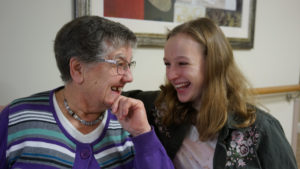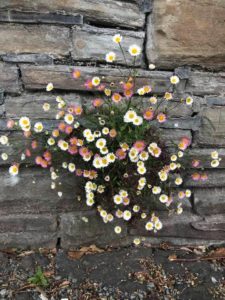 It has a touch of the romantic about it, the story of how two indigenous groups in the Bolivian Amazon have the lowest rates of dementia in the world. Among the older Tsimane and Moseten people, roughly only 1% developed dementia, whereas in the United States, it is 11% of older people. Researchers put it down to the groups’ healthy living, with plenty of exercise and a good diet. [i]
It has a touch of the romantic about it, the story of how two indigenous groups in the Bolivian Amazon have the lowest rates of dementia in the world. Among the older Tsimane and Moseten people, roughly only 1% developed dementia, whereas in the United States, it is 11% of older people. Researchers put it down to the groups’ healthy living, with plenty of exercise and a good diet. [i]
But researchers seem to have missed something of importance that was discovered in the 1950s. Conventional wisdom says that our health and longevity depends to a great extent on our genetic inheritance, as well as on our diet and how much exercise we take. But the results of an intense – and extensive study of a group of people in a small, close-knit immigrant group showed the only factor that accounted for the fact that they only died of old age was that they lived a community life-style.
‘No one was used to thinking about health in terms of community,’ commented writer Malcolm Gladwell, ‘They had to look beyond the individual. They had to understand the culture he or she was a part of, and who their friends and families were … they had to appreciate the idea that the values of the world we inhabit and the people we surround ourselves with have a profound effect on who we are.’
I wrote about it in ‘Dementia: Pathways to Hope.’ The immigrants were Italian immigrants from a region 100 miles southwest of Rome. By the late 1890s, almost 2,000 had sailed over. They settled on a rocky hillside similar to the landscape they’d left, built houses and a church, and named their town Roseta after the one they’d left behind. They became a close knit, prosperous community. In the 1950s, a holidaying university lecturer from Oklahoma, Dr Stewart Wolf, was amazed to hear from a local doctor that no-one from Roseta under the age of 65 had heart disease. At that time (1950s), heart attacks were the leading cause of death in men in that age group. Wolf enlisted the support of some of his students and colleagues from Oklahoma, and spent the whole of the next summer examining the people of Roseta. They even tracked down relatives of the Rosetans who were living in other parts of the States, but found they did not enjoy the same remarkable health as their relatives in the little Pennsylvania town.
The Rosetans had a diet that would be frowned on today. They ate meat, loved butter and pasta; they cooked with lard, and in short, ate a lot of fat and carbohydrates. But they had kept the family ties and the close community values they’d brought from the old country. Interviewed by New York Times journalist Malcolm Gladwell, sociologist John Bruhn remembered, ‘There was no suicide, no alcoholism, no drug addiction, and very little crime. They didn’t have anyone on welfare. Then we looked at peptic ulcers. They didn’t have any of those either. These people were dying of old age. That’s it.’[ii]
The researchers concluded that the Roseta community’s stable structure, the ‘emphasis on family cohesion and the supportive nature of the community may have been protective against heart attacks and conducive to longevity.’ There was much scepticism at first amongst the wider medical community, but there was no other finding.
It’s known that feelings of loneliness double the risk of dementia. In searching for a ‘medical’ cause, are we wasting money that could be spent on building community and supporting families?
[i] https://www.sciencedaily.com/releases/2022/03
[ii] Outliers, The story of Success, p 7, Malcolm Gladwell, 2009, Read More Penguin.















